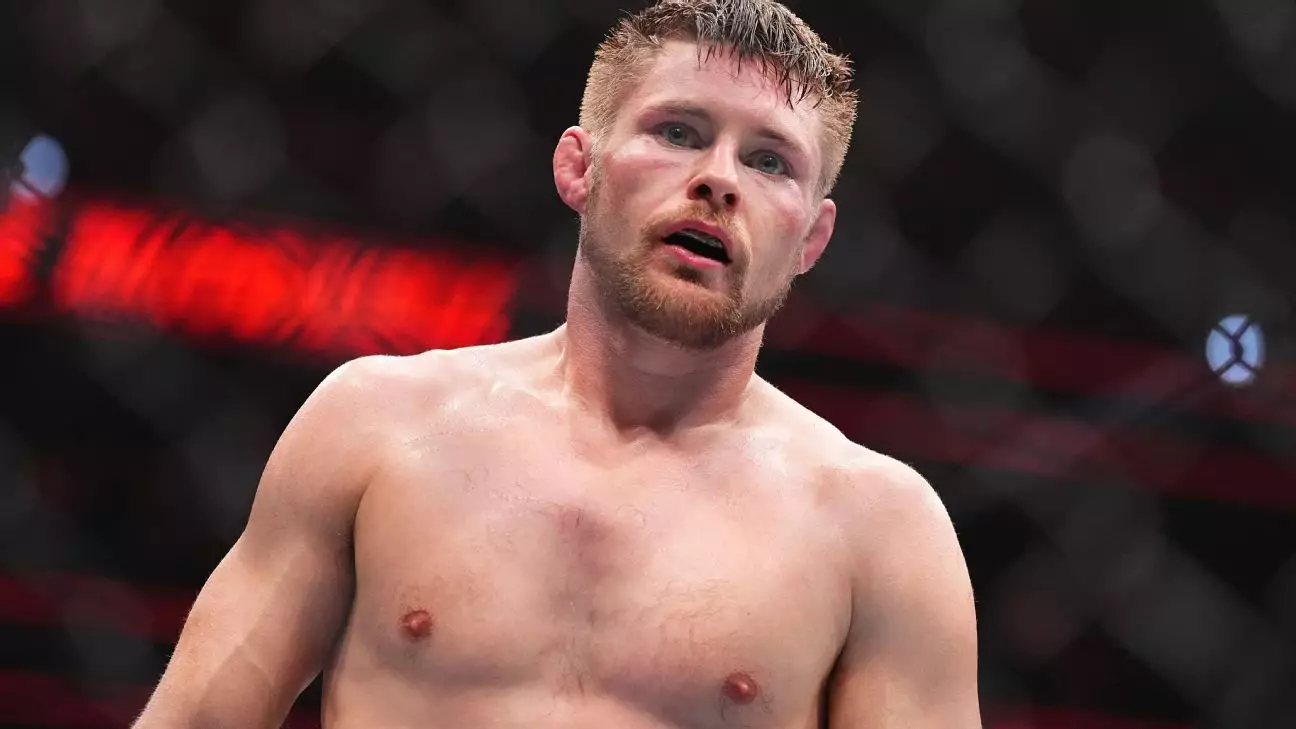The world of mixed martial arts is no stranger to controversy, but recent comments made by UFC featherweight Bryce Mitchell on his podcast, “ArkanSanity,” have stirred an uproar that extends far beyond the octagon. In an episode rife with troubling assertions, Mitchell defended Adolf Hitler and propagated Holocaust denial while targeting various marginalized communities, including the LGBTQ+ and Jewish populations. Such rhetoric raises critical questions about the responsibility of public figures in the age of social media, where platforms can amplify misguided ideologies to a vast audience.
UFC president Dana White responded resolutely to Mitchell’s statements, emphasizing the abhorrent nature of such claims. White’s condemnation reached a peak when he called the comments “beyond disgusting” and illuminated the historical weight of the Holocaust, affirming the reality of the atrocities committed under Hitler’s regime. He characterized Hitler as “one of the most disgusting and evil human beings to ever walk the Earth,” firmly rejecting any notion that would vilify those historical truths. White’s remarks underscore the importance of fact-checking and maintaining integrity when discussing volatile figures of history.
Despite the gravity of Mitchell’s statements, White indicated that the UFC would not impose disciplinary actions, highlighting the delicate balance between free speech and accountability. White declared, “It’s free speech,” a mantra that echoes throughout numerous public debates today. This principle, however, can be a double-edged sword—while individuals must be allowed to express their views, it does not exempt them from the societal repercussions of their words. The lack of immediate repercussions raises ethical questions regarding the extent of accountability for athletes who misuse their platforms to disseminate harmful ideas.
The scenario surrounding Mitchell also brings to light a larger conversation about the role of social media in shaping public discourse. White noted the detrimental effect that the internet can have by providing a space for the propagation of “dumb and ignorant” beliefs. This sentiment resonates in an era where sensationalism tends to overshadow facts, leading to the normalization of extremist views. The UFC’s association with such statements, even indirectly, places the organization under scrutiny, as fans and fighters alike grapple with the implications of using a public platform for questionable rhetoric.
As the dust settles on this controversial exchange, it becomes evident that Bryce Mitchell’s remarks and their subsequent condemnation by Dana White represent a critical moment in the intersection of sports, advocacy, and free speech. There is a pressing need for greater awareness and education about the historical context surrounding comments made by influential figures. For fans, fighters, and the wider community, the challenge remains to foster a dialogue that embraces diversity and condemns hatred—ensuring that history is remembered accurately and compassionately, while guarding against the ignorance that can so easily take root in today’s society.


Leave a Reply